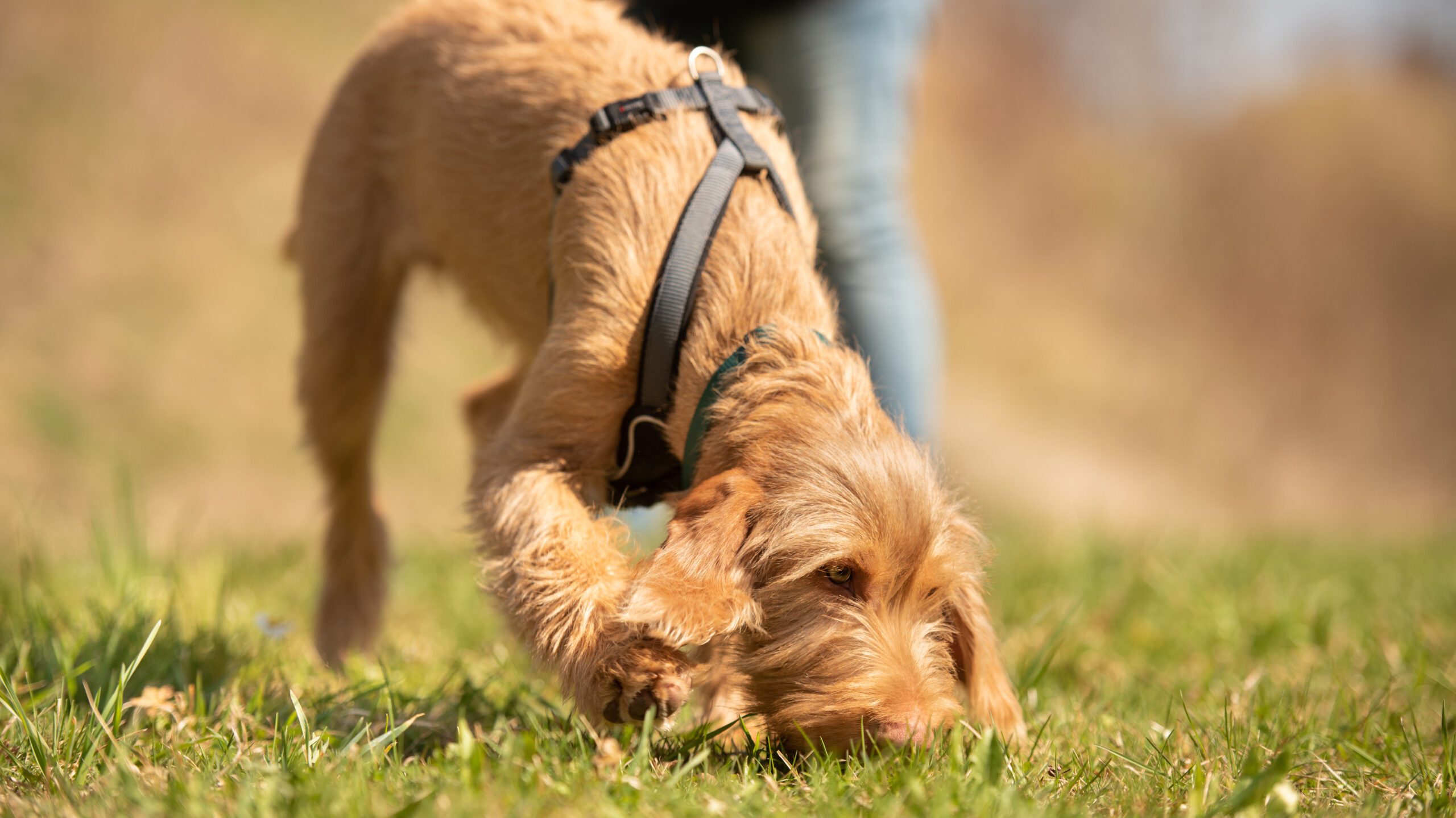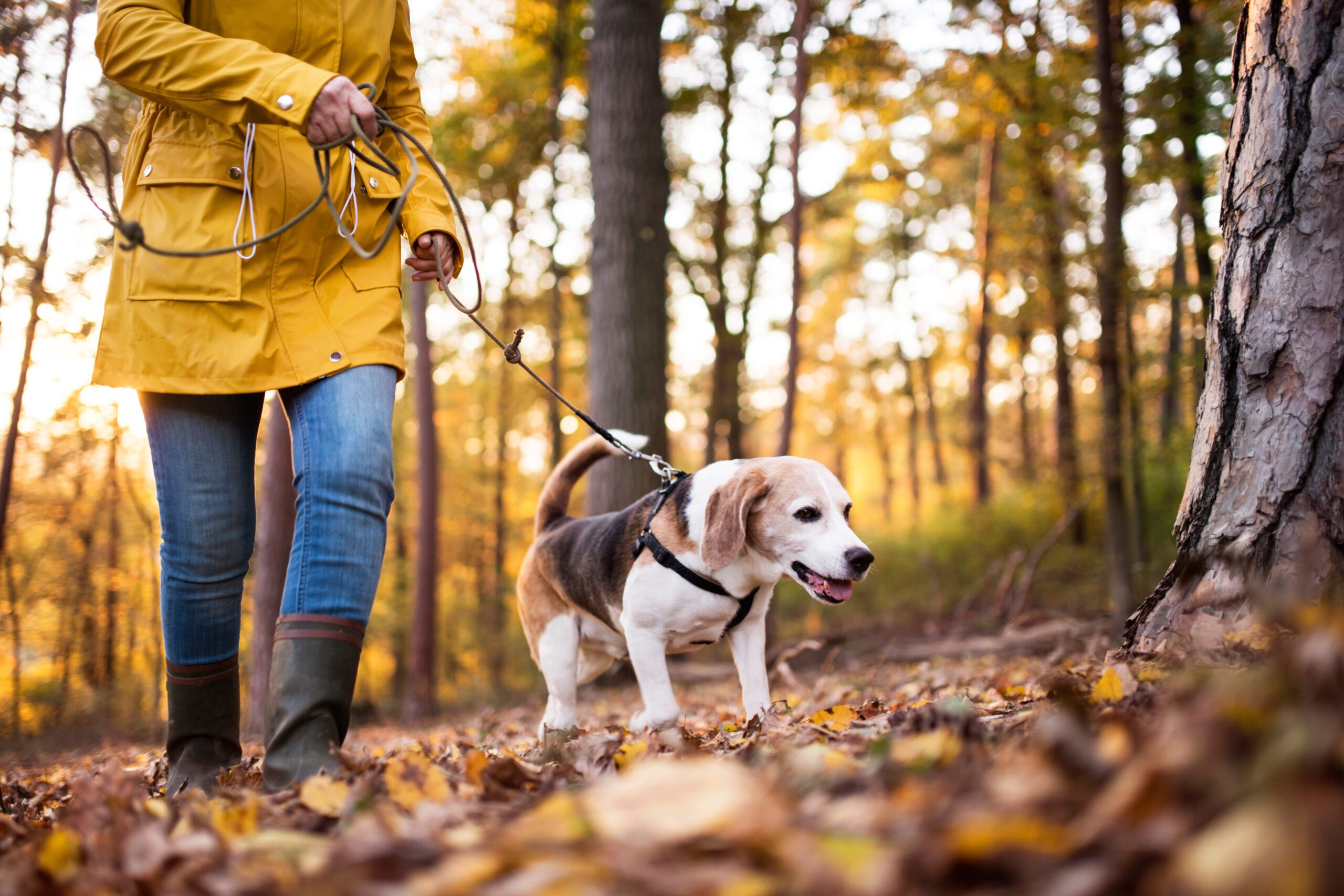Why is my dog trying to eat everything it sees when I take them for a walk? Why can’t I get my dog to just focus on walking, and not trying to eat and sniff absolutely everything they see?
Walking a dog that incessantly sniffs and tries to eat everything on the ground can be a common challenge. But fear not! With a few simple techniques and consistent training, you can help your canine companion overcome this behavior and make walks an enjoyable experience for both of you.
Understanding the Root Cause: Dogs explore the world through their noses, and their scavenging behavior on walks stems from their natural curiosity and scavenger instincts. This behavior could also be due to anxiety, lack of mental stimulation, or simply the rewarding taste of whatever they find.

Dog Training Tips to Curb the Behavior:
- Basic Obedience Training: Teaching basic commands like “leave it,” “drop it,” and “heel” is crucial. Practice these commands in a controlled environment at home before incorporating them into outdoor walks.
- Use Positive Reinforcement: When your dog listens to your command and refrains from eating something off the ground, reward them with treats, praise, or toys. Positive reinforcement helps normalize good behavior.
- Distraction Techniques: Carry toys or treats during walks to redirect your dog’s attention. Engage them in play or offer a tasty treat as an alternative to what they find on the ground.
- Consistency is Key: Be patient and consistent in your training efforts. Reinforce good behavior each time you’re out for a walk.
- Keep Your Dog Engaged: Mental stimulation is as important as physical exercise for dogs. Consider puzzle toys or training games at home to keep your dog mentally active, reducing their urge to scavenge during walks.
- Proper Leash Handling: Ensure you have control over the leash. A shorter leash allows you to guide your dog better and prevent them from lunging toward things on the ground.
- Avoid Certain Areas: If you know certain spots or routes are littered with tempting items, try to avoid those areas until your dog’s training is more established.
- Professional Training Classes: Consider enrolling your dog in obedience classes led by professional trainers. This can provide them with socialization and structured training, aiding in behavioral improvements.
Remember, every dog is different, and what works for one might not work for another. Tailor your training to suit your dog’s personality and needs.

Additional Considerations:
- Diet and Nutrition: Ensure your dog’s nutritional needs are met to reduce the likelihood of them seeking out food on the ground.
- Vet Check-Up: Sometimes, excessive scavenging behavior can be due to medical issues. A visit to the vet can rule out any underlying health problems.
In conclusion, training your dog to stop eating everything on walks requires time, patience, and consistency. Be persistent in your efforts, and with the right approach, you can guide your dog to overcome this behavior, making your walks more enjoyable for the both of you.
By implementing these tips, you’re not just training your dog but also strengthening your bond. Enjoy your walks, and witness the positive changes in your dog’s behavior as they learn to heed your commands and resist the temptation to gobble up everything they find on the ground.






